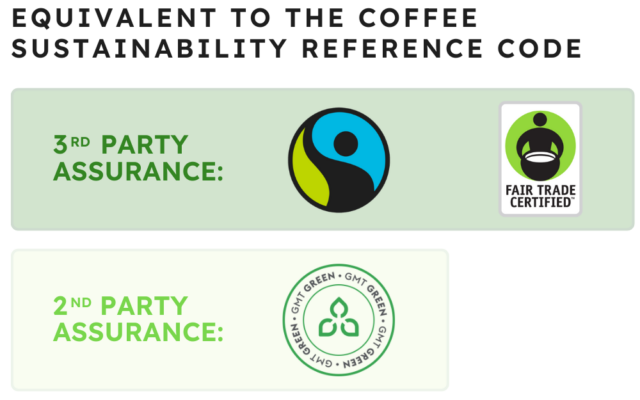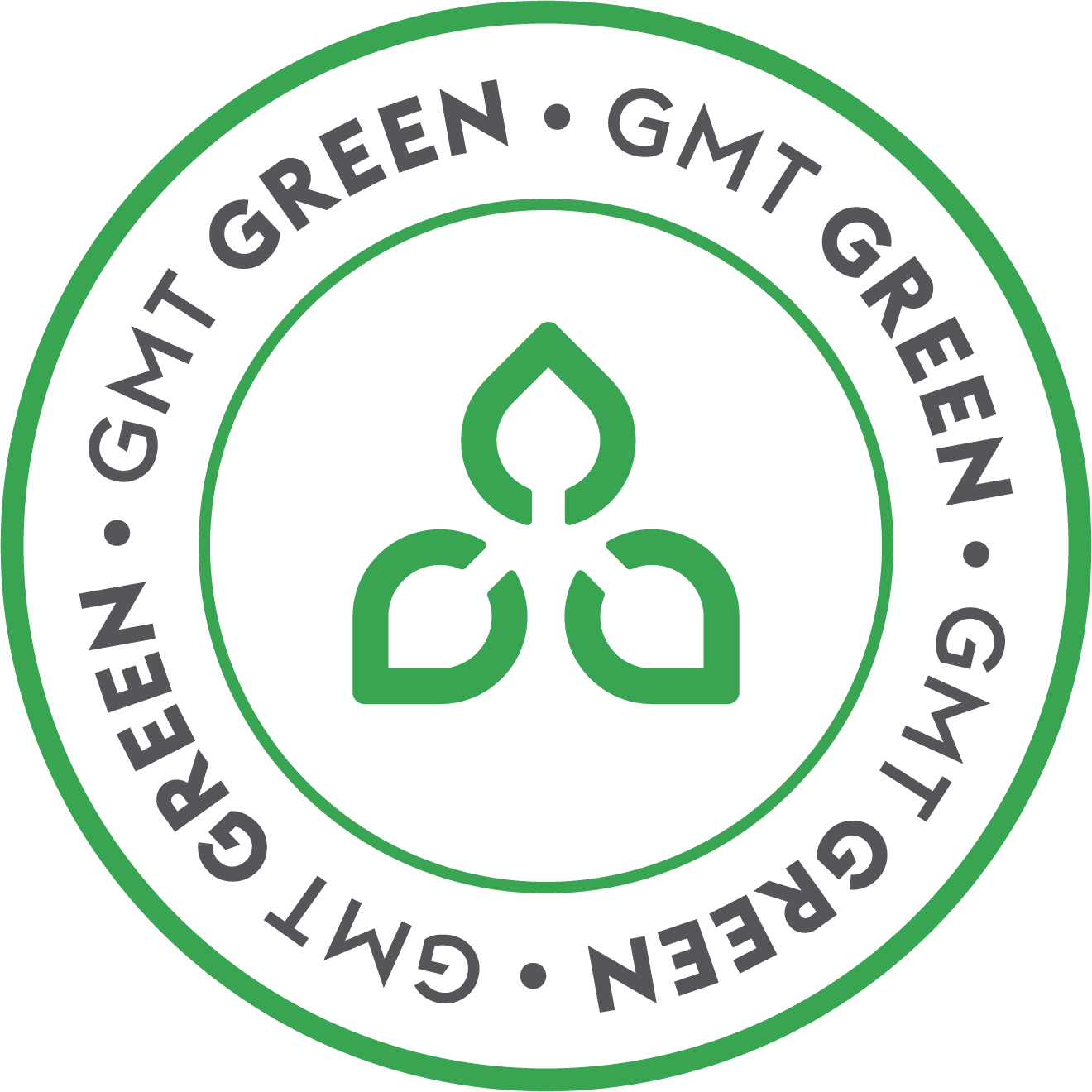Increases continue in the number of sustainability schemes aligning to Coffee Sustainability Reference Code
Global Coffee Platform recognizes three new sustainability schemes as equivalent to the Coffee Sustainability Reference Code

Global Coffee Platform recognizes three new sustainability schemes as equivalent to the Coffee Sustainability Reference Code
BONN, GERMANY (23 May 2024). Three sustainability schemes have been added to the growing list of schemes recognized by the Global Coffee Platform (GCP) as equivalent to the Coffee Sustainability Reference Code (Coffee SR Code). The news comes on the back of new strategic efforts from the platform, promoting sector alignment to the principles and practices of coffee sustainability.
“We’ve seen a very positive response to GCP’s call for the use of a common language on the foundations of coffee sustainability,” said Annette Pensel, Executive Director, GCP.
“The three organizations we’re pleased to announce today are the latest to join the growing list of sustainability schemes owned by GCP Members that are answering that call. We applaud this commitment to the use of a common language and the increasing openness to transparency.”
GCP announced today the recognition of Fairtrade International, Small Producer Organization and Coffee Standard, and Fair Trade USA’s Agriculture Production Standard as equivalent to the Coffee SR Code 3rd party assurance. In addition, Montesanto Tavares Group’s GMT Green has been recognized as equivalent to the Coffee SR Code, 2nd party assurance. The number of sustainability schemes recognized by GCP now amounts to 19, representing encouraging progress for sector alignment on coffee sustainability.
Sector alignment for coffee sustainability
Sustainability schemes going through the GCP Equivalence Mechanism Process – which was strengthened with stricter sustainability and operational criteria in 2022 – are aligning their systems to become equivalent to the Coffee SR Code. The code is a sector-wide reference on the foundations of sustainability in economic, social and environmental dimensions for green coffee production and primary processing worldwide.
GCP’s Equivalence Mechanism also entails assessment against a set of operational criteria that ensures a credible and effective system for implementation and includes governance, standard-setting, assurance, data and claims requirements.

According to Mario Vega, GCP’s newly appointed Senior Manager Sustainable Sourcing, today’s announcement was the first of the year with more sustainability schemes planned to be announced in Q3 and Q4.
“Alignment is a critical feature to understand, advance and accelerate coffee sustainability and we applaud the action by these GCP Members to step up and publicly measure up to the Coffee SR Code and GCP Equivalence Mechanism,” said Vega.
For the assessment of the sustainability schemes, GCP partnered with the International Trade Centre, which, as GCP implementation partner and creator of the Standards Map, assessed the schemes against the principles and practices of the Coffee SR Code and the operating practices that schemes should have in place to be considered credible and effective.
“The Coffee SR Code serves as a baseline, and equivalent schemes meet at least these requirements. Some schemes – especially 3rd party schemes – may go further with their principles and practices, their commitment to transparency, and their approaches to deal with sustainability issues,” said Vega.
“We hope that these GCP Members will inspire others to step up for coffee sustainability for the urgent and essential advancement of farmer prosperity.”
All sustainability schemes recognized by GCP are eligible for roasters and retailers to be included in the annual GCP Collective Reporting on Sustainable Coffee Purchases, another way companies are aligning and increasing transparency to advance coffee sustainability globally.
The Equivalence Mechanism, together with the Coffee SR Code and the GCP Collective Reporting on Sustainable Coffee Purchases, are connected assets developed by GCP to offer a common language on the foundations for coffee sustainability and promote the supply and demand of coffee produced following at least baseline sustainability principles.

“Recognition by the Global Coffee Platform is a significant milestone that validates Fairtrade’s ongoing efforts to promote sustainable coffee production. It not only acknowledges our dedication, but also instils confidence among stakeholders and reinforces the integrity of our Standards. This recognition opens doors to greater collaboration to amplify our impact on coffee communities globally.”
Pablo Urbina
Coffee Coordinator, Fairtrade International

“We are honored to receive equivalence to the Coffee Sustainability Reference Code, 3rd party assurance, from the Global Coffee Platform for our Agriculture Production Standards. This validation affirms our commitment to sustainable and ethical agriculture. A commitment that further empowers global farming communities to uplift themselves and reinforces our drive for equity and growth, as we nurture a brighter sustainable future for coffee producers worldwide.”
Sugumar Raman
Chief Program Officer, Fair Trade USA

“GMT Green is the Montesanto Tavares Group’s main initiative to promote good practices and more sustainable coffee. Driven by a genuine passion for coffee, we work alongside producers, structuring an evolutionary path for the Brazilian coffee chain to achieve worldwide recognition in terms of its sustainability and quality. The achievement of equivalence to the Global Coffee Platform’s Coffee Sustainability Reference Code, 2nd party assurance, reinforces our commitment to the continuous improvement of the coffee sector.”
Thiago Franco
Sustainability Manager, GMT Green
SUSTAINABILITY SCHEMES
CURRENTLY RECOGNIZED BY GCP AS
EQUIVALENT TO THE COFFEE SR CODE
3rd PARTY
ASSURANCE
4C
Fairtrade International, Small Producer Organization and Coffee Standard
Fair Trade USA’s Agriculture Production Standard
Rainforest Alliance Sustainable Agriculture Standard
2nd PARTY
ASSURANCE
ECOM’s SMS Verified
Enveritas’ Enveritas Green
Exportadora de Café Guaxupé’s Guaxupé Planet
Louis Dreyfus Company’s Responsible Sourcing Program Advanced
Montesanto Tavares Group’s GMT Green
Nespresso AAA Sustainable Quality™ Program
Neumann Kaffee Gruppe’s NKG BLOOM, and
NKG Verified
ofi’s AtSourceV, and
AtSource+
Racafé’s CRECER
3E® by RGC Coffee
Sucafina’s IMPACT
Volcafe’s Volcafe Verified, and
Volcafe Excellence
What does it mean to be Equivalent 2nd or 3rd party?
2nd Party assurance is often referred to as verification and 3rd party assurance is often referred to as certification. The main difference between these two levels of assurance is that 3rd Party assurance includes the independent oversight of the competency of the entity performing the assessments/audits to ensure effectiveness and impartiality., this includes but goes beyond third-party audits at farm level.
2nd Party assurance is often referred to as verification and 3rd party assurance is often referred to as certification. The main differences between these two levels of assurance are that 3rd Party assurance:
i) includes the independent oversight of the competency of the entity performing the assessments/audits to ensure effectiveness and impartiality, this includes but goes beyond third-party audits at farm level
ii) the scheme is not managed or owned by the certificate holder, audit firms, or buyer.
What is the GCP Equivalence Mechanism?
The GCP Equivalence Mechanism is a framework developed by GCP to assess whether a scheme can be considered equivalent to the Coffee Sustainability Reference Code, a sector-wide reference on the foundations of sustainability in economic, social and environmental dimensions for green coffee production and primary processing worldwide. GCP’s Equivalence Process evaluates whether a sustainability scheme meets both the Code and a set of operational criteria (including governance, standard-setting, assurance, data and claims requirements). This helps to ensure that recognized sustainability schemes have a credible and effective system for implementation.
What is the Coffee Sustainability Reference Code (Coffee SR Code)?
The Coffee SR Code provides sustainability stakeholders with a simplified and fit-for-purpose framework to foster better understanding of principles that support baseline sustainable coffee production. In addition, it addresses ongoing challenges in the coffee sustainability landscape as well as key emerging concerns such as climate change, or diversity, equity and inclusion. The Code provides the sector with a common language to collectively advance farmers’ prosperity, social well-being, and the conservation of nature. It is available in Bahasa, English, French, Portuguese, Spanish, and Vietnamese.
What is GCP Collective Reporting on Sustainable Coffee Purchases?
Through GCP Collective Reporting on Sustainable Coffee Purchases, roasters and retailers commit to collectively and transparently report their sustainable coffee purchases in the annual GCP Snapshot. These leading coffee companies apply aligned reporting metrics that illustrate leadership, achievements and progress to continually increase their purchases of sustainable coffees from diverse origins worldwide.
Interested in reporting? Contact GCP to start now!